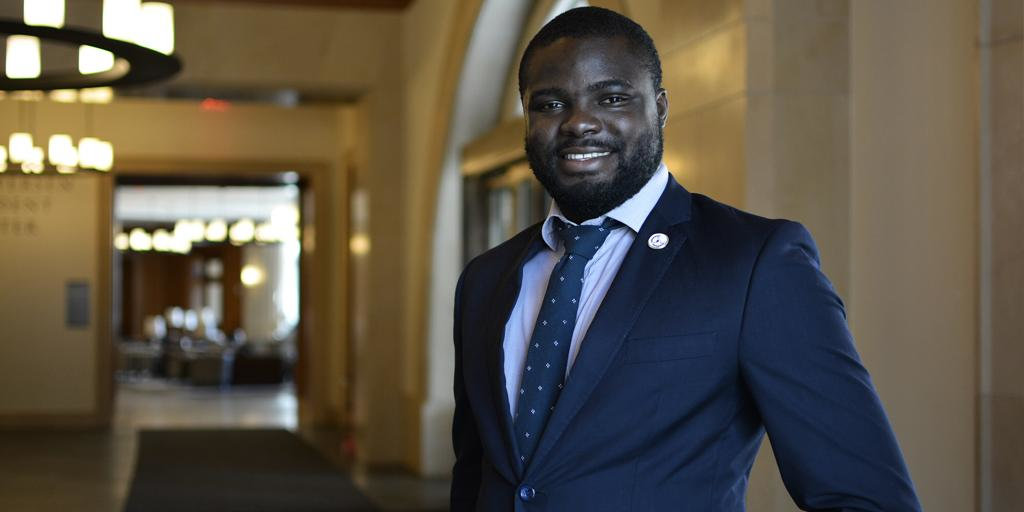
Too many global strategies treat Africa as a single market. Francophone consumers prove otherwise — young, connected, and ready to reward brands that understand their world.
Passy Nopoudem, regional communications expert at Irvine Partners. (Image supplied.)
Walk into a café in Abidjan or Douala and you’ll see it instantly: young people with their smartphones, scrolling TikTok, paying via mobile money, switching between French, English and local slang in a single breath.
This always-on, mobile-money lifestyle makes switching brands effortless, so loyalty hinges on convenience and cultural relevance rather than long histories.
Their discovery happens through viral trends and peer validation more than traditional advertising, forcing brands to win trust in real time.
Distinct markets, distinct rules
This is the face of today’s Francophone African consumer: young, connected, and radically reshaping how brand loyalty is built and sustained.
Too often, Francophone Africa is overlooked in global expansion strategies, overshadowed by larger Anglophone markets like Nigeria, South Africa, or Kenya.
The assumption is that consumer behaviour in one part of the continent mirrors another. That’s where global headquarters get it wrong.
French-speaking markets are distinct: shaped by cultural nuance, language, and consumer perceptions that play by different rules. Brands approaching them with copy-paste strategies quickly learn that what worked in Lagos or Johannesburg may fall flat in Abidjan or Dakar.
Young and hungry for connection
More than 60% of Africa’s population is under 25. This is a mobile-first generation that consumes entertainment, news, and advertising on their phones.
This means they actively engage with brands that speak their language (literally and culturally). They follow influencers on TikTok, buy from local entrepreneurs on WhatsApp, and trust what feels relatable.
While price matters, authenticity and cultural resonance are what turn first-time buyers into lifelong advocates.
Loyalty is built differently here
In many Western markets, loyalty comes from rewards programs or seamless digital experiences. In Francophone Africa, it’s more personal.
People go back to brands that show up consistently, prove they can be trusted, and align with local values.
This is why Spotify has gained traction by amplifying francophone creators — streaming French-language music, podcasts, and audiobooks to millions of users both within and outside traditional French speaking regions; and by investing in creator-support programmes like its Africa Podcast Fund, which backs content in French and ensures listening experiences rooted in local culture.
Trust and credibility are the new currency of loyalty. That’s where we come in. We sit at the intersection of global ambition and local resonance, helping.
One of the biggest mistakes we see is over-centralisation of strategy. A campaign designed in London or Paris, translated into French, and then pushed into Dakar will rarely stick.
Local consumers are quick to spot what feels like a one-size-fits-all approach.
They want brands that understand their humour, their slang, their cultural references. Without this, global brands risk being seen as tone-deaf or opportunistic.
Unlocking market gems
More than just a new sales frontier, this region is one where brand loyalty can transform into brand advocacy if nurtured correctly.
The opportunities are enormous thanks to its young consumers, rising digital adoption, and untapped cultural influence.
But it demands a local-first strategy that’s globally aligned while remaining deeply human.
Expanding into Francophone Africa demands more than a launch plan; it requires partners who can bridge global ambition with local resonance.
Brands that combine on-the-ground insight with strategic global thinking avoid the blind spots that derail expansion.
Insight over assumptions
With a deep understanding of media landscapes, consumer habits, and cultural codes, the right support can turn unfamiliar markets into loyal communities—and loyal communities into lasting movements.
For international brands, Francophone Africa could be the missing piece in the African growth story.
The question isn’t if these markets are worth the investment; it’s whether brands will take the time to understand and approach them the right way.
Those who do will find themselves not just selling products but building movements.








Recent Comments